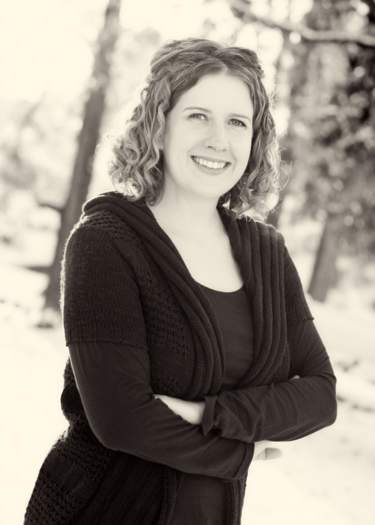New report warns of potential obstacles to effective COVID-19 vaccine delivery
Jayme Blaschke | July 9, 2020

As COVID-19 cases continue to increase in Texas, development of a vaccine is viewed by many as the best option for getting the pandemic under control.
A new report from a national work group co-chaired by Emily Brunson, associate professor in the Department of Anthropology at Texas State University, warns that an array of social factors could ultimately undermine any vaccine's effectiveness if not addressed.
The report, "The Public’s Role in COVID-19 Vaccination: Planning Recommendations Informed by Design Thinking and the Social, Behavioral and Communication Sciences," was released July 9 by the Center for Health Security at Johns Hopkins Bloomberg School of Public Health and may be accessed at www.centerforhealthsecurity.org/our-work/pubs_archive/pubs-pdfs/2020/200709-The-Publics-Role-in-COVID-19-Vaccination.pdf.
"While vaccines represent a promising solution to the COVID-19 pandemic, the development of the vaccines is only part of the solution. Widespread acceptance of these vaccines is also needed," Brunson said. "In this report, which was drafted by a 23-person working group composed of national figures in public health and the social sciences, my co-authors and I provide practical recommendations that we believe, if acted upon, will advance public understanding of, access to, and ultimately acceptance of SARS-CoV-2 vaccines."
The report provides recommendations to U.S. policymakers and practitioners on how to advance public understanding of, access to, and acceptance of future vaccines that would protect against COVID-19. It warns that despite several promising vaccines in current development, some U.S. residents, particularly those most at risk of infection, may miss out on this potentially lifesaving public health measure due to concerns such as:
- anxieties about whether COVID-19 vaccines are safe or effective
- mistrust of vaccine manufacturers and the agencies that regulate the industry and/or the public health authorities recommending the products
- whether a COVID-19 vaccine will be affordable and administered in a place that is readily accessible and feels safe.
In the report, the authors offer recommendations for U.S. vaccination planners and implementers, which if put into place now, could help overcome potential hurdles when a vaccine becomes available:
- Earn the public’s confidence that vaccine allocation and availability are evenhanded. The U.S. government should take steps to make the vaccine available at no cost for all U.S. residents and publicly pledge that everyone who wants a vaccine can get one.
- Make vaccination available in safe, familiar and convenient places. Assess local vaccination capacities and address any inadequacies, and work with community members—particularly members of minority and other marginalized groups—to establish vaccination sites that will be accessible and feel safe.
- Communicate in meaningful, relevant, and personal terms, to counter misinformation. The U.S. government, the Centers for Disease Control and Prevention and community spokespeople should be engaged in message development and communication efforts to help neutralize misinformation about COVID-19 vaccines.
- Establish independent representative bodies to instill public ownership of the vaccination program. The US government should form a national panel of experts, convened by a politically neutral entity, to review, synthesize, and report on best practices for engaging communities.
Overall, these recommendations are focused on putting people at the center of what the researchers define as a "revolutionary COVID-19 vaccine enterprise," where communities can be active research partners, rather than passive study subjects. This vaccine enterprise approach includes using human-centered design principles (i.e., design thinking) to help improve the planning and implementation of vaccination programs.
Share this article
For more information, contact University Communications:Jayme Blaschke, 512-245-2555 Sandy Pantlik, 512-245-2922 |